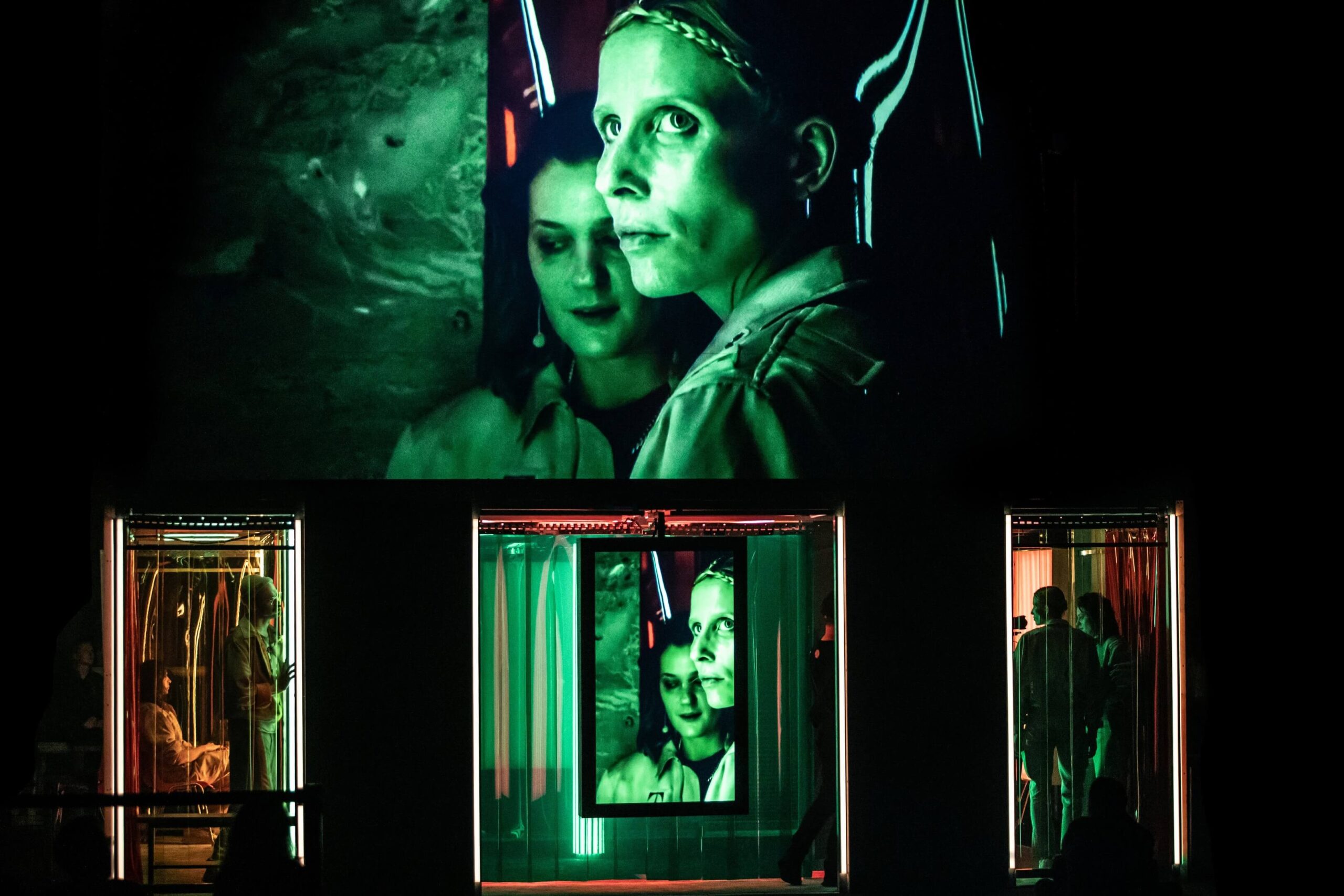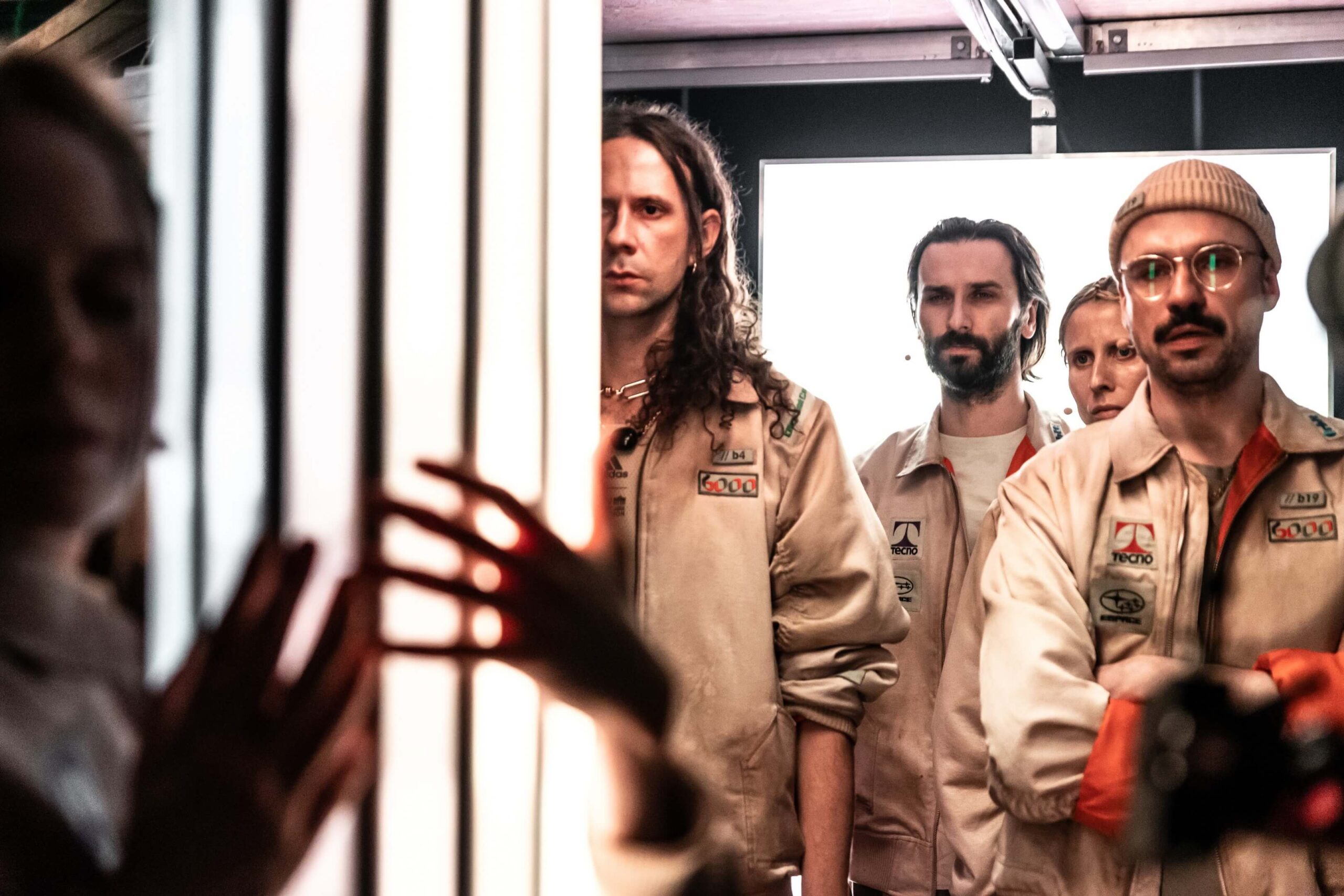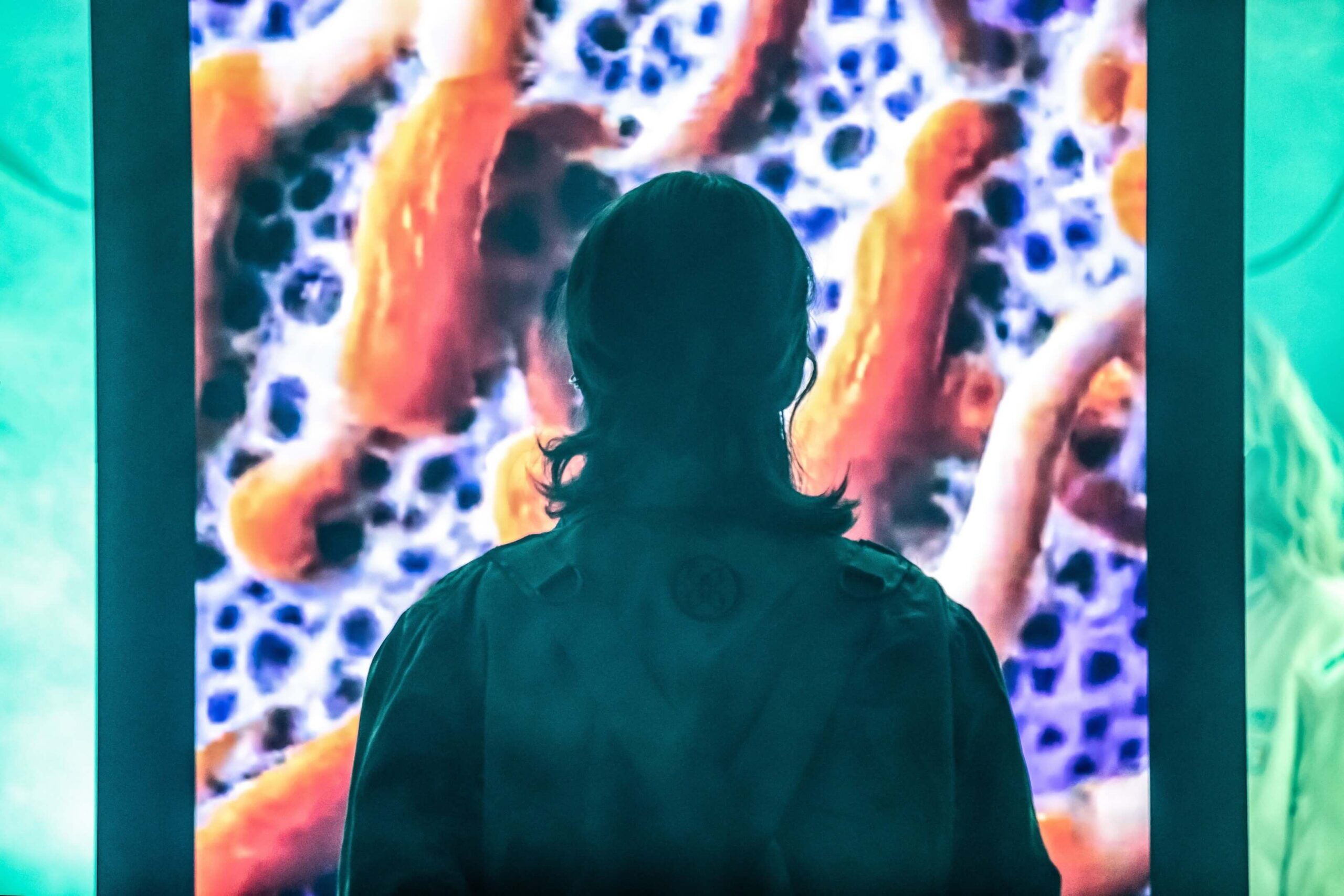The Employees
Subtitles in Czech language
Subtitles in English language
The production contains nudity, strobe lights, smoking and very loud music
Dramaturgical introduction
ticketsPossibility to obtain a quantity discount of -25%.
Regular NdB discounts can be applied to tickets.
The discount for seniors is 30%.
The discount for disabled persons and students is 50%.
Discounts are not to be combined.
Dramaturgical introduction 30 minutes before the play in the foyer
The audience sits in the sports stands during the play
- Dramatic introductions for performances always begin 30 minutes before the start of the performance.
- Performances take place in Hall G2 (with the observation tower).
- To reach the pavilion, use the G2 entrance by the Exhibition Centre tram stop – entrance G2. This entrance will always be open 45 minutes before the start of the performance. To get to the pavilion, you can also use the main entrance to the BVV complex at the Exhibition Grounds tram stop – main entrance.
- Parking is available in the adjacent parking spaces around the BVV grounds. However, we do not provide parking spaces and cannot guarantee them. It is not possible to enter the premises by car.
- There will be an evening box office on site where you can conveniently pick up your reservations and purchase tickets.
- A cloakroom will be available.
- Please heed any instructions from the organisers, which you will recognise by the festival badge.
Performance-installation by Łukasz Twarkowski, one of the most interesting creators of his generation, based on the novel of a contemporary Danish author, Olga Ravn. The story of The Employees unfolds in an undetermined near future, on a spaceship carrying people and humanoid robots. All crew members are subject to cold, bureaucratic discipline that is seemingly pointless. Under these extreme conditions, a closed community is forced to confront questions about the differences between the human and the non-human, and about the essence of consciousness.
Twarkowski’s The Employees, as well as many of his previous works, opposes the traditional understanding of theatricality; it makes the audience a part of his dystopian world, and not merely its passive observers.
In 2020, The Employees, a new title by Olga Ravn entered the library of dystopian science-fiction literature. In her book, the Earth has been annihilated. The story is told through fragmentary reports of the ship crew. The accounts begin and end at – seemingly – random moments and concern the everyday routine. From the scraps supplied by the author, the readers constructs their impression of the reality in which people miss the Earth and rebel against the formalised rules in force aboard the ship, while humanoids, treated as entities devoid of typical human sensualities, demand the ability to feel and develop their senses. The ship carries strange objects, artifacts of an ancient art exhibition which impact the crew in an unexplained way. Spaces described by Ravn are cool, white, resembling gallery architecture. At the end of the work, the ship as a form of a failed experiment, turns into a macabre museum.
Both Ravn’s novel and Twarkowski’s performance seem to pose one of the most fundamental questions about what human consciousness actually is. Are the brain and the mind the same thing? Science continues to find new neuronal correlates of sensory events. When we discover a simple and quick way to work out the functioning of the human brain, will we be able to build an artificial brain that, when inserted into a robot, will turn an android into a human being? What will AI algorithms do, equipped with a set of certain problem-solving tools, and learning from their own mistakes, when they exceed the possibilities expected from them by the programmer? Can a developing, constantly learning system of artificial intelligence cross this magical border beyond which it ceases to be merely an unbeatable chess master, and becomes a chess player who actually enjoys winning?
Author: Olga Ravn
Translation from Danish: Bogusława Sochańska
Directed: Łukasz Twarkowski
Adaptation and dramaturgy: Joanna Bednarczyk
Set: Fabien Lédé
Costumes: Svenja Gassen
Music: Lubomir Grzelak
Lighting: Bartosz Nalazek
Movement consultant: Rob Wasiewicz
Video: Jakub Lech
Cameramen: Iwo Jabłoński, Gloria Grünig
Production: Monika Balińska
Inspicient: Zuzanna Prusińska
Assistant Director: Adam Zduńczyk
Production Assistant: Aleksandra Urban
Models and subjects: Katarzyna Rytka
Lighting Operator: Jan Zajączkowski
Sound Operator: Damian Kruszewski, Rafał Szydłowski
Video operators: Adrien Cognac, Adam Kuznowicz
Cast: Dominika Biernat, Daniel Dobosz, Małgorzata Hajewska-Krzysztofik, Maja Pankiewicz / Wiktoria Kruszczyńska, Sonia Roszczuk, Paweł Smagała, Rob Wasiewicz




